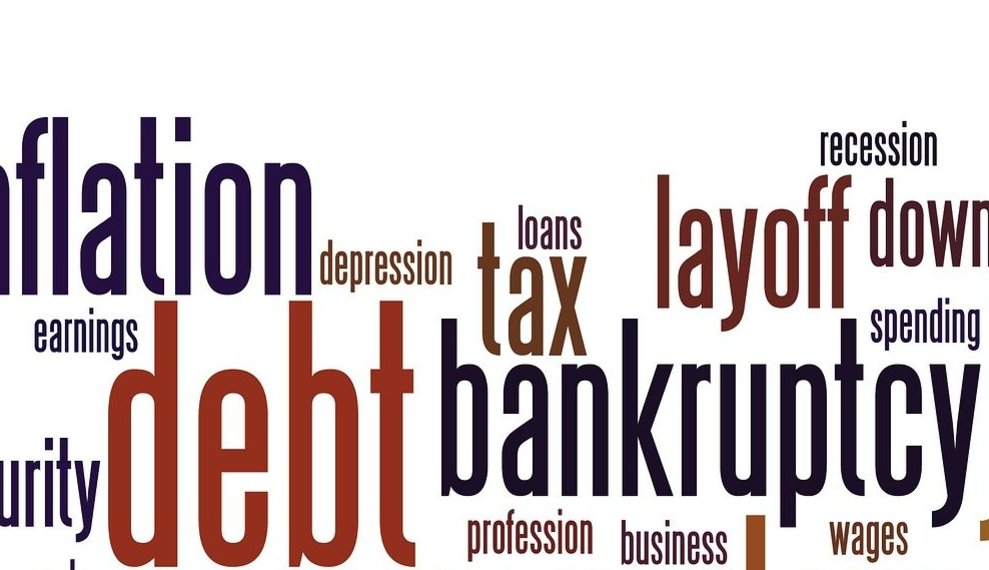How to Navigate the Worst Recession in 300 Years
Posted on 17th August 2020
With the UK officially entering its first recession for 11 years, and with the pandemic seemingly building toward a threatening "second wave," businesses are going to have to be shrewd with their strategy if they are to successfully navigate their way through these uncertain times.
The latest figures revealed that the UK economy shrank by 20.4% during the second quarter of 2020, after a drop of 2.2% during the first three months. The two back-to-back contractions meet the official definition of a recession (two consecutive negative quarters). Still, this is a type of recession that has not been experienced for over one hundred years.
While it's clear that the public health crisis resulted in the government forcibly closing the doors of businesses and shutting down large swathes of the economy, it's proving to be the case that it's not as simple as merely "turning the lights back on" as we try to find our way back as a nation.
So what should you do as a business owner looking to initially survive this crisis, before potentially looking to prosper as the economic recovery gathers pace? The answer, in the short term, is based mostly on your cash position.
"Cash is King"
There's a reason why it's a famous saying; because it's true! At times of economic strife, as a business, you need to pool your cash reserves to ensure you can survive the squeeze on company finances. Therefore, the first step is to draw in as much cash as you can. Even in that means divesting yourself of stakes and investments, you need to build a little bit of buffer during these uncertain times.
The next step is to analyse all of your incomings and outgoings in minute detail and start building a cash flow forecast. This is something you should be looking at daily, regardless. After all, even in healthy economic conditions, 82% of small businesses that go bust do so due to cash flow problems. However, during a worldwide pandemic and potentially the deepest recession for over 300 years, this exercise takes on vital importance.
Build an Accurate Cash Flow Forecast
First and foremost, an accurate and continually-updated cash flow forecast will firstly ensure that both your employees and critical suppliers will get paid. Not paying your suppliers will see them put you "on stop" likely leaving you without a means to replenish products or services. The consequences of not paying your employees are even worse.
Perhaps the best part of laying out your incomings and outgoings in over a weekly, monthly, and quarterly forecasts is that it works as an early warning system, alerting you to potential trouble on the horizon. For instance, it will highlight dates where you're scheduled to have a lot of money leaving your bank and not a whole lot coming back in. But crucially, you'll have enough time to make adjustments (even if you're under severe financial pressure) to ensure you're never in danger of running out of cash.
Just take a look at the collapse of Flybe as an example. The company had been under financial duress for several years, but it always managed to keep going by managing their cash position efficiently. That all fell apart when they had £10 million of bills due on the 6th March, with only £5.7 million in the bank. When the owners refused to put any more money in, that was that as they say.
Build a War Chest
A war chest or an emergency fund is something you should have in place as an absolute last resort. This is true of both your business and personal finances. Ideally, an emergency fund of this nature should you cover a minimum of six months (two negative quarters) of expenses. Once you have this provision in place, you're in a much better position to stave off even the most challenging economic conditions.
A so-called "war chest" is something that you need to be committed to even during these times of uncertainty. It will not only help you to instil discipline when it comes to business and personal spending, but it will take the pressure of should the economy fall back into recession later down the line.
Finally, once you've built your fund, leave it alone. It should not be dipped into for any frivolous reasons. Define what constitutes an emergency and only touch the funds if those criteria are met.
Enter Survival Mode
During an economic hit of such magnitude, you should focus on survival at all costs. When it comes to planning your business moving forward, it's about redirecting funds to the essential core activities of your business. This is not the time to be launching new projects or making investments with sizeable risk attached to them.
Instead, focus on consolidating what you have, and then once you've consolidated your position, you can begin to inch forward in line with your business performance. As a business owner, there's no point obsessing over profit or growth targets at a time like this. Stay afloat, build healthy cash reserves, and then scale from there.
The same could be said of your personal expenses. Now is not the time to spending on luxuries. It's the time to reduce debt, clear credit cards, and pay off what you can on outstanding obligations to secure a modest base from which to build upon.
Record and Learn from Your Experiences
Life is tough out there for many business owners, particularly since this type of recession has not been witnessed in living memory. But hindsight is a wonderful thing. Albeit very different circumstances, many individuals and businesses who have successfully navigated this recession so far have done so thanks to the lessons they learnt from the events of 2008.
Therefore, journal or record the important decisions you're making with both your personal and business finances during this period, so when the next inevitable recession rolls around, you already have a plan on standby. For instance, it may be that you've never built a personal or company-based emergency fund before. The decision to accumulate robust reserves could save you when the next recession hits your specific industry particularly hard.
Let the Experts Examine Your Finances and Guide You to Safety
Whether this is your first recession or your fifth, the unique challenges of this specific period are challenging even the most experienced of business owners. Whether you need help with your personal or company finances, here at BGS, we can provide expert advice to help you successfully navigate this continued economic uncertainty.
Relying on our decades of experience, we'll find ways to make strategic changes to your current set up to minimise expenditure and maximise income whilst planning for the future.
So if you feel you or your company would benefit from financial and accounting experts, don't hesitate to contact us. Together, we'll help you take proactive steps toward surviving and subsequently thriving.
Tagged as: News
Share this post:








